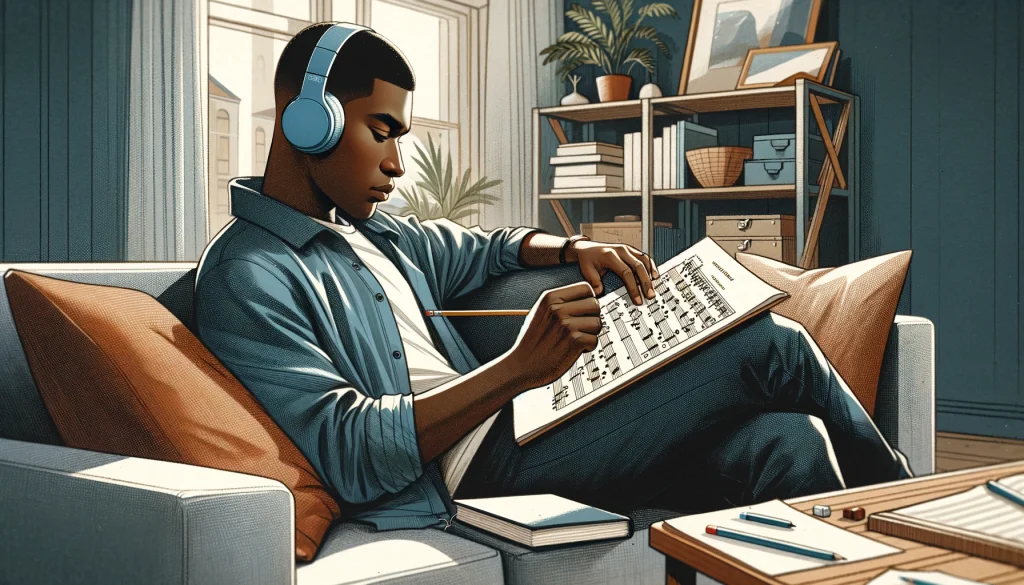If you’re on the creative end of the arts, you have probably at some point felt creatively “blocked,” as though you reached a brick wall and can’t figure out how to break through. Here are some tips for avoiding and countering writer’s block:
You Don’t Have to Write from Start to Finish
Many writers fall into the trap of wanting to start from the beginning and write their way to the end, as though the creative process has to follow the linear approach that your audience eventually will on first encountering your work. Don’t fall into this trap. Feel free to write piecemeal, jumping to sections that call out to your more and then back-filling transitions once you have your basic armature. Be sure that you give these transitions serious treatment though. Using makeshift transitions can be fine in a draft, but in the final work, they can give the impression of a patch-work quilt.
Have Multiple Projects Going at Once
I usually have several creative projects going at the same time. If I feel blocked in one (or just sick of it), I can shift my energy over to another project, until I’m ready to return to the first project refreshed. Don’t dig in your heels in response to writer’s block. This can just frustrate you more. Instead, pull your focus elsewhere and get your creative juices flowing again. You’ll be surprised at the new perspective and momentum you can find for a project by just getting away from it for a while.
Writing is Rewriting
E.B. White said, “The best writing is rewriting.” Ernest Hemingway went further: “The only kind of writing is rewriting.” (emphasis mine) Nothing is more oppressive than the blank page. Get something down on paper, even if it’s terrible, and then edit or rewrite it into something more solid. Many of us are fearful of putting something bad down on paper, but this is often the first step en route to putting something worthwhile on paper. The idea of the writer who drafts the perfect first draft, essentially just taking dictation from the muses, is a Hollywood myth. (Even people with meticulous manuscripts likely have great memories and have done much of the working out of ideas in their heads.) The rough draft is for you alone to see. So if you’re stuck, write something bad and edit it into something good. If the bad idea proves fruitless or overly resistant to improvement, distracting yourself with this task may still give you the space and perspective to find a better solution.
Get It Done and Move On
Sometimes we just have to finish a work and move on with our lives. Maybe you’re writing a piece on commission and just aren’t feeling it. Maybe you feel vexed by a piece and are fixated on it. In either case, you may just have to get through it. Not every piece will be a masterwork. And while we should always give our best efforts, sometimes you just have to get something out and move on with life. I find this one really tough, but I have a few pieces I’ve written that will likely never see the light of day. But I needed to finish them. Best case and likeliest scenario, I still learned some things while working on them and emerged refreshed, ready to take on a project that’s less of a chore.
The Perfect is the Enemy of the Good
The composer Paul Dukas (most famous for his “Sorcerer’s Apprentice”) is said to have destroyed many of his works for fear that they weren’t good enough. However, if you ever try listening to Beethoven’s collected output, you’ll discover a lot of works that are just not that interesting. Most prolific composers have huge amounts of underwhelming compositions that never make it into the canon. We love their masterworks, but only a minority of their output really merits that descriptor. Many artists are perfectionists. In moderation, this leads to good results. The best artists usually revise and revise, eventually just calling works “done” at some point because they won’t live forever.
“Art is never finished, only abandoned.”
—Leonardo da Vinci
I have yet to complete a work that upon reexamination, I feel like there’s nothing further I can do to improve it. Perfectionism in excess, however, prevents us from completing and releasing works, and then moving on to new ones. Write great work — the best that you can at the time. Let your quest for perfectionism drive you to challenge yourself to do better, to make every moment count, to produce something of which you’ll be proud. But don’t let it thwart your ability to finish and feel good about what you’ve created .
Distract Yourself
Writer’s block thrives in an environment of obstinacy. The best way to get past the brick wall isn’t to repeatedly run headfirst into it. It’s to take a breath, take a step back, and find your way around, over, or under it. Some find that exercise can help. Others take a break and do something fun. If I’m feeling like I want to create, but am blocked on this project, I move onto another one and come back (see my second tip above). Writer’s block often evaporates if you don’t fixate on it and give it time and space to dissipate.
It’s worth mentioning that some writers take a different approach. Some lock themselves in their rooms for three hours a day and have enforced writing time. I think it was Donald Erb, who in a master class, shared with me and my fellow students at the time that he’s fond of this approach, even if it means he spends three hours sharpening pencils or staring at blank piece of paper and weeping. This approach isn’t appealing to me, but it seems to work for some. I imagine that there are some benefits in setting aside a time and place where one does the hard work of writing. Sleep experts suggest that you use your bedroom only to sleep and carve out the time and shape the environment to condition yourself to associate this time and place with sleep. I suspect you might similarly train your brain to see this as the time to write. There may even be some freedom in knowing that you have this time carved out, and the other 21 hours of the day are yours to spend as you please; your writing time is already attended to.
Watch Your Self-Talk
Be careful with what you tell yourself. The beliefs you hold about your writing tend to become self-fulfilling prophecies. So, listen to what you’re telling yourself and, when necessary, rewrite the script. Figure out what you’re saying to yourself and then rewrite it. Tell yourself this revised story enough and it may become true. Instead of “I’ll never get this done,” consider, “I need some time to give my ideas a chance to come together. I’ll get away from this for a little while and come back later with fresh energy and ideas.” It may feel like I’m asking you to lie to yourself, but the former statement is a story based on fear; the second is a story based on experience. Either story is “true” for you if you believe it.
Tips for Newer Writers (and Reminders for the Rest of Us)
- Write! You have to practice this skill. So, do it a lot. And get your work read so you can hear it and experience others hearing it. Solicit feedback from people whom you respect and who will really give it to you. You can’t do enough of this.
- Just get something down on the paper, even if it’s not any good. Sometimes the hardest part is getting started. See “Writing is rewriting” above and consider this quote:
“The secret of getting ahead is getting started. The secret of getting started is breaking your complex overwhelming tasks into small manageable tasks, and then starting on the first one.”
—Mark Twain
- Try some writing exercises. The Internet is overflowing with writing exercises you can try. If you’re a composer, try using improvisation to help you find germinal ideas you can develop. Some composers even work with other musicians and through their shared collaborations, develop the basic musical material for their pieces.
- Don’t write a “masterpiece.” It’s not up to you to determine if you write a masterpiece or not. Don’t fixate on the weight of the collective art of the ages and feel you have to make a worthwhile and lasting contribution to the canon. Instead, write something that speaks to you, that’s in your voice, that challenges and enriches you as an artist and person.
- Don’t court the muse; do the work. Many creative types have written about dispelling the myth of sitting down and courting the muse. Chefs cook; writers write; composers compose. It’s our job. We’re trained for it and it is, to a large extent, a skill. It’s usually by doing the hard work of the creative process that we are able to gain the inspiration we need to do it well.
“What I try to do is write. I may write for two weeks ‘the cat sat on the mat, that is that, not a rat,’…. And it might be just the most boring and awful stuff. But I try. When I’m writing, I write. And then it’s as if the muse is convinced that I’m serious and says, ‘Okay. Okay. I’ll come.’”
—Maya Angelou
- Write a bad work first. There is a truism in writing: You have to write a bad work before you write a mediocre work before you write a good one. Your craft takes time and refinement. So, get writing! Always do your best, but understand that your early attempts may not be any good. Ira Glass has spoken about this brilliantly, discussing the gap between our taste and what we create at first. Watch this short video! I highly recommend it.
- Listen to/Read Others! New creative types are often afraid of listening or reading too much of other people’s work, for fear that others’ creative voices will somehow wipe clean or replace their own. I’ve heard writers use this to explain why they don’t read other writers, composers use this to explain why they won’t study music theory or listen to music, etc. The thing is that the best, most successful writers can attest to this: exposure to others’ work just makes your own voice grow. It is only amateurs who fear that ignorance will somehow protect the sanctity of their creative process. It’s normal to think this, but have the courage to move past it. So, read, listen, and learn from others. Don’t reinvent the wheel; find new ways to use it.
- Writing Can Be Drudgery. I remember when I first seriously invested in composing as a career. A friend of mine’s mother, an elementary school music teacher, said to me, “You must just be loving this. I know that the music is just pouring out of you!” I wondered if there was something wrong with me. Sometimes, oftentimes in fact, I found the process laborious, even torturous. I felt a compulsion to do it, liked coming up with ideas, liked finishing works, but the majority of the process was somewhat unpleasant. This is normal and a secret shame of many writers. Be brave. Talk to your friends who are writers about the things like this that worry you. You’ll be amazed at how many shared experiences and fears you’ll discover.
“[T]here are only two interesting times to be a writer. The moment you start a project, and the moment you end it. And the rest is just drudgery.”
—As Bees in Honey Drown (Douglas Carter Beane)
Further Reading
- Stucky, Steven. “New Music and the Masterpiece Syndrome.” Steven Stucky, Composer. N.p., n.d. Web. 10 June 2016. (link)
- “Writing Tips: Strategies for Overcoming Writer’s Block.” Writers Workshop: Writer Resources. The Center for Writing Studies, University of Illinois at Urbana-Champaign, n.d. Web. 10 June 2016. (link)
What Do You Think?
Share your best tips about avoiding and overcoming writer’s block with a comment below!
©2016 Aaron Alon. All Rights Reserved.











0 Comments